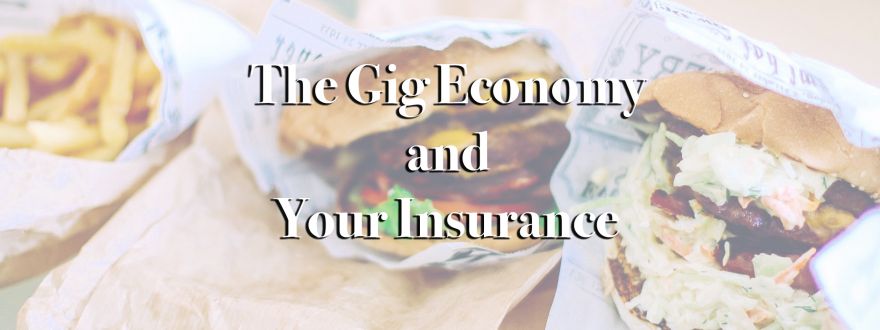
A recent email from a client:
A situation with my brother in law has completely convinced us it's very necessary to have an umbrella policy. Very briefly: His daughter got into an accident (her fault) while on the way to a restaurant as a DoorDash worker. His insurance is balking at taking the claim since she was "working" at the time. But DoorDash won't cover either as their policy only covers the driver after they leave the restaurant with the food.
So we need to get the umbrella and should insure the AirBB.
I also wanted to run his situation by you to see if you have an opinion, since perhaps you've had a client in this position. It seems like a terrible position to be in: One insurer, DoorDash, says you're not working, so not their problem, then his actual carrier, says he isn't because actually, she IS working.
We are certainly getting more and more of these questions, and this letter was of particular interest as it pulls in several issues and assumptions that are commonly misunderstood about what we can expect from our insurance in these situations.
An umbrella policy also referred to as excess liability, is a great idea, but it is not a solution for this situation. Generally speaking, if the situation isn’t covered by the underlying policies it’s not going to be picked up by the umbrella. This “gig economy” concept such as Airbnb, Uber, Lyft, AirBnb or VRBO exposes consumers to business liability, which is NOT covered under the standard auto, home, motorcycle or boat policy providing only personal liability.
“But these platforms (Airbnb, Lyft etc) provide their own insurance” is often the response.
True, but where does that coverage begin and where does your personal coverage end?
The example our client described, shows us that DoorDash would have covered the incident if the food were in hand, but not when the driver was heading to pick up the food. The personal liability policy considers it business when the app is “on” and the driver is heading to and from the delivery. Same thing with Lyft or Uber drivers. When the driver is logged in for requests, they are considered to be doing business while available, but the insurance by Uber or Lyft has been identifying the coverage starting when the passenger is picked up. Therein lies the gap that is NOT covered.
What is the solution? Some companies have already rolled out endorsements to their policies to accommodate these gaps. The problem? People aren’t asking for it. People often assume that because they have insurance, they have coverage. Just because it’s called insurance, doesn’t mean it covers everything.
In almost every blog we write, you’ll see us say pretty consistently, when in doubt, call your agent. Look for and answer the questionnaires your company sends at renewal. Read the newsletters, and ask anytime you're not sure. Ignorance is not bliss when it comes to contracts. Yes, it might cost more, but you’ll at least have all the information you need to decide if it’s worth it to take on these gigs, and to find out how you can get that coverage to bridge those gaps.
The landscape for insurance is constantly changing, and while the companies will continue to adjust and file those adjustments through the Department of Insurance, it's important to review each renewal and call with questions when your ever-shifting life affects your insurance needs.





